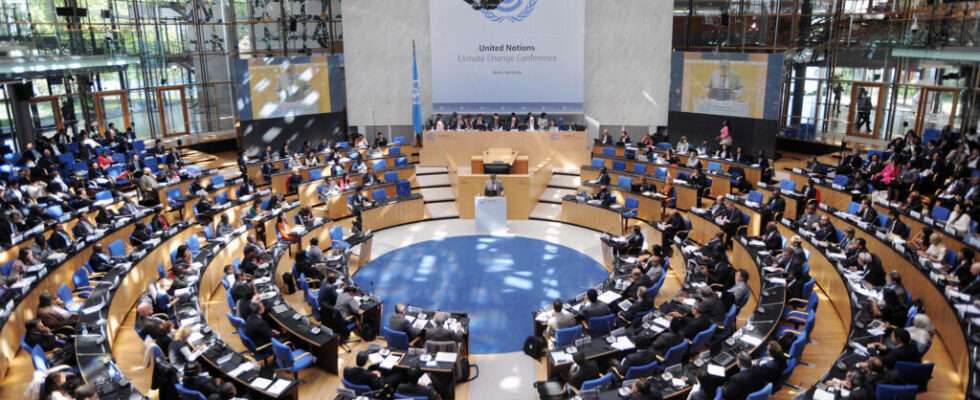Six months before the opening of COP29, the United Nations conference on climate change, which will be organized in December in Azerbaijan, representatives from each country are meeting from this Monday in Germany. A sort of pre-COP which should serve to launch discussions, hoping for an ambitious agreement possible in Baku. Objective which still seems difficult to achieve.
3 mins
When COP29 Next December, States will have to agree on a new financial aid objective for the countries of the South. Assistance intended for their energy transition and their adaptation to climate change. This is the number one issue of this meeting in Bonn.
These poorer countries are the most vulnerable to climate change. They are also the least responsible for greenhouse gas emissions. They expect credible promises of aid from rich countries. Well beyond the current goal of $100 billion that has been so difficult to achieve.
This question remains sensitive. The United States and the European Union are reluctant to pay. They want China and the Gulf oil countries, now considered sufficiently developed, to also take action.
A life-size test for the Azerbaijani president
It will also be an opportunity to see Muktar Babayev, the Azerbaijani president of the next COP, in action and to explore his diplomatic weight in resolving sensitive issues. Many observers are already concerned about the possible restrictions imposed on civil society, in an oil-producing country.
Another important point: the UN is asking all countries to publish, by next year, ambitious plans to reduce greenhouse gas emissions. An enormous task which must concern all sectors of the economy and which is still very far from being completed. However, it is essential if humanity wants to ensure a livable planet within a few decades.
The fate of children in the face of climate change discussed in Bonn
For the first time, during this conference in Bonn, a specific meeting will be organized to address the issue of specific climate funds dedicated to the needs of children. Because they are the ones who are in fact disproportionately affected by the climate emergency.
The number of children facing acute hunger due to extreme weather events has more than doubled in the past five years. This is the alarming finding of a study published this Monday by the NGO Save the Children. In the 18 countries where droughts, cyclones and floods have had the most serious impacts on food insecurity, 33 million children are now going hungry. There were 13 million in 2018.
“ Hunger can lead to malnutrition, and therefore affect the mental and physical development of children. But climatic events themselves also affect children. For example, the extreme heat wave in recent weeks has led to the closure of schools in many countries. The terrible floods have displaced many children, explains Emily Wight, spokesperson for the NGO Save the Children. These events force parents to take their children out of school so that they can work, or even push them into early marriages. And all this creates very dangerous situations for children “.
Although children are disproportionately exposed to the climate emergency, only 2.4% of global climate funds are currently dedicated to them.
Read alsoUnicef publishes its first statistics on climate-related child displacement
